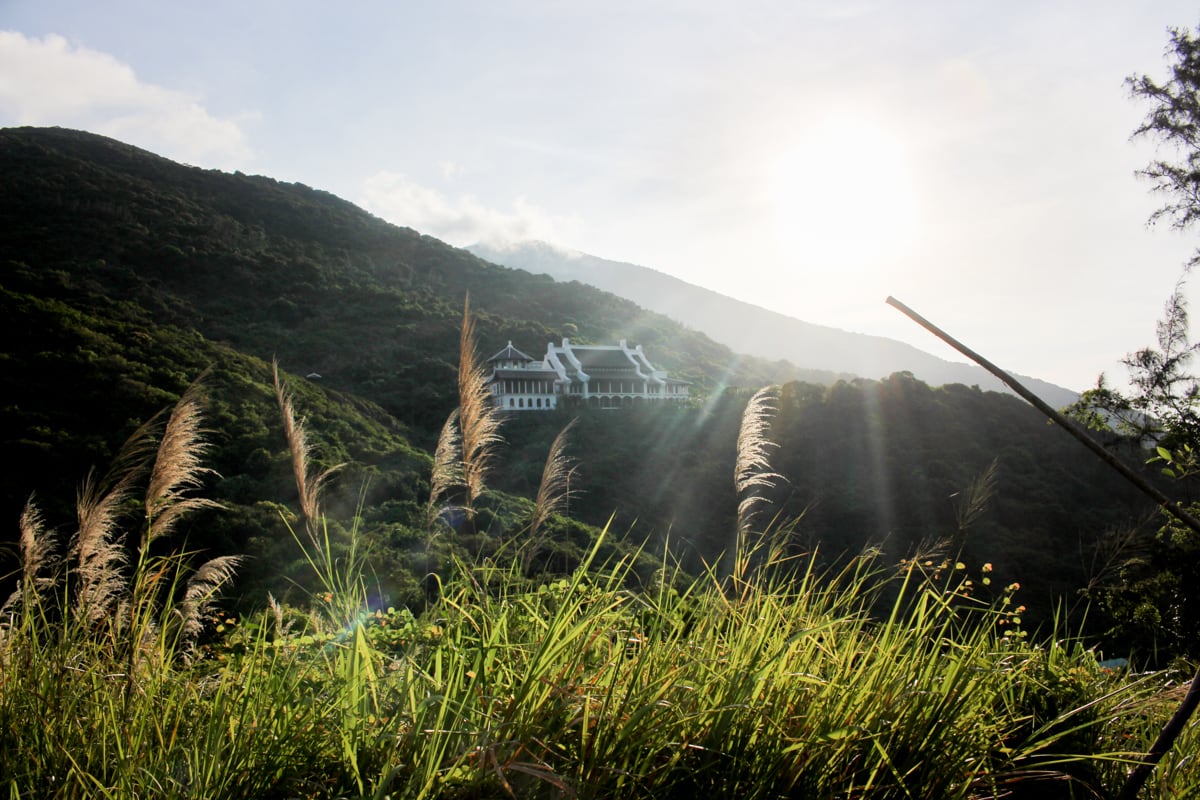The only remaining coastal rainforest in Vietnam, the Son Tra Nature Reserve is the lung of Danang city and home to over a thousand species of flora and fauna, including the endemic red-shanked douc langur - a species of monkey that relies on sustained conservation efforts for survival.
Driving these efforts as part of InterContinental Danang Sun Peninsula Resort’s variety of initiatives to protect the biodiversity of the Son Tra Nature Reserve is the property’s new zoologist Anthony Barker. Anthony was previously with Natural Resource Wales, the principal adviser to the Welsh government on the environment and protection of natural resources. He then worked with an organic farm in Australia, before coming to Danang to teach science.
We join Anthony on a wildlife walk around the reserve and ask him about the critical role he plays at the resort.

What attracted you to the position of InterContinental Danang’s zoologist?
I knew that Vietnam was an upcoming developing destination, especially for tourism, where infrastructure development has been exploding. I knew that I would find environmental work and could pursue my interest in sustainability. Living in Danang, I would often visit the surrounding nature reserve and national parks, and it was here that I learnt about many critically endangered animals. So when I heard that InterContinental Danang Sun Peninsula was taking the responsibility to protect and become harmonious with nature, it was only natural that I jumped at the opportunity to help support them when the position opened up. Especially given the resort’s special relationship with the endangered red-shanked douc langur - a key interest of mine.

How does the InterContinental Danang’s natural conservation efforts compare to other projects you've worked in the past? What makes this role unique and a challenge?
In the past I have worked for an environmental agency back home in the UK, where we would be monitoring special areas of conservation across the country to report on. This is the first time that my efforts have been focused on one place and it can be very rewarding to see the resort grow and the wildlife flourish.
What makes it unique is meshing the hospitality side, which I am quite new to, and the environmental side. It was quite an adjustment to go from climbing through the jungle to record data on our douc populations one moment to offering the highest hospitality service to the guests on my tours the next. I am not sure how many businesses have live-in environmental experts on their payroll, but I do hope it is something we see more of in the future.

Resident douc langurs - naughty or nice?
Nicest of nice, as they don’t share the same food as us (being folivore) they are not too interested in the world down below, preferring to stay up in the trees. There is so much we are yet to learn about these elusive, understudied creatures. In my opinion, they are the most beautiful of all primates, yet they will rarely reveal themselves for long. Although they seem just as curious about us as we are about them, they are shy by nature. They don’t like much attention and if you overstep your mark, they have no problem disappearing without a trace. That’s why wildlife interaction training is mandatory for all our staff to make sure we allow the monkeys to migrate through and feed on our resort trees without being disturbed. This is a key initiative to accomplish to live harmoniously with nature.

Since joining the resort, what has been your main focus? What projects can you share with us about that illustrate your responsibilities?
My main focus has been on looking at the entire reserve and identifying the main threats to the environment. What can we change to tackle them? For example, the douc langur and other species are part of the illegal wildlife trade, which means there are many attempts to source animals from the reserve. So to tackle this, we ensure our security is watertight as well as continuously educating our staff and guests about the dangers poachers pose to the endangered species. It is hard to find the resources to police the entire reserve, yet we can strive to make our space the best it can possibly be.
Then we look at what species of trees the doucs feed on. We can make sure the ones in our area remain healthy and watered through the dry season and plant more to ease migration through the resort.
We also rely on the generosity of our guests and the many people who are beginning to see the importance of environmental sustainability. Through fundraising and awareness campaigns we raise funds to help support our local environmental NGOs, such as GreenViet - a keystone organization in protecting Vietnam’s wildlife.
What other sustainability and eco-friendly projects does the InterContinental Danang have in the pipeline?

We are currently entering the final stages of our plastic phase-out plan, and are almost ready to be 100% plastic-free. We have just received approval for our glass bottling plant, meaning goodbye plastic bottles, as all our bottles will be made of glass and will be reusable and refilled at our filtration plant. This not only means no more waste from the packaged drinking water, but also a carbon-neutral process in supplying the resort with water.
We are continuing with our energy reduction initiatives and waste management, and are currently in discussion to create a composting site for food waste. Compost will be used to fertilize the resort's organic garden, reducing our carbon footprint and food waste and ensuring guests enjoy fresh produce.
Additionally, we are beginning to work with other NGOs for further tree planting projects and are constantly mind-mapping for new green team building exercises for our staff and for groups staying at our resort. We hope to be able to repair illegally logged areas by replanting them with species of trees endemic to Son Tra.




